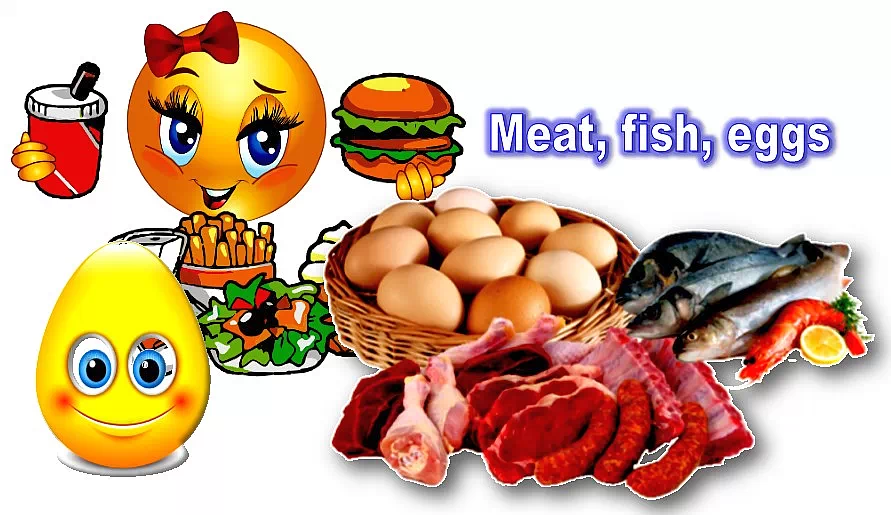Meat – Fish – Eggs & Nutritional Values
People generally consume meat of animals such as goats (called as chevon), pigs (pork), cattle (beef), sheep (mutton), calves (veal), birds and chicken (poultry), deer (venison) etc.
Meat is edible either raw or cooked. People normally prefer to eat cooked meat. Its main composition contains water, protein, and fat.
Meat consists of the essential amino acids, zinc, vitamin B12, selenium, phosphorous, niacin, vitamin B6, choline, riboflavin, and iron. Fat in the meat becomes juicy when cooked and offers calorific values to the meal. The consumption of meat products has increased since 1960 that leads to significant imbalances of fat and cholesterol in the human diet.
Meat is processed with additives such as salt, sweeteners, flavorings, acidifiers, etc. to protect or modify its flavor and color. Processing improves meat’s juiciness, tenderness, cohesiveness.
Fish food contains proteins, fat, fatty acids.
Fish are an important dietary resource for humans. It is estimated that one-sixth of world’s protein to be acquired by fish. Today fish are primarily associated with aqua industry and also attached with other sectors such as food, feed, pharma and service industries.
Some popular species of fish are herring, cod, anchovy, tuna, flounder, and salmon. Shellfish such as mollusks and crustaceans are also used as food.
Fish food is rich in proteins and amino acids and low in fat. It has many vitamins and minerals such as vitamin B, Potassium, Magnesium, Selenium, etc.
Fish also consists of antioxidants, omega-3 fish oils, and other minerals. It is recommended by WHO to eat fish at least two-times a week to get necessary Omega-3 fatty acids.
Eggs are mostly used in cooking as a versatile food.
The regular eggs that are eaten are of birds such as chickens, ducks, geese, ostriches, and others. Chicken eggs are now produced as a mass scale.
Eggs consists of multiple proteins.
The chicken eggs normally have 70 kcal of energy and 6 grams of protein for 50 grams and 5 grams of fat in yolk. The boiled eggs generally provide vitamin A, riboflavin, pantothenic acid, vitamin B12, choline, phosphorus, zinc, and vitamin D.
Ingredients of egg white:
Water – 90%
Proteins – 10%. Proteins such as albumins, globulins, and others are in dissolved condition. It has no fat and carbohydrates (cholesterol).
The proteins in raw eggs are 51%. When they are cooked it can be increased to 91%.
Egg white is also used to prepare vaccines such as for influenza.
World’s Dominating Diets



